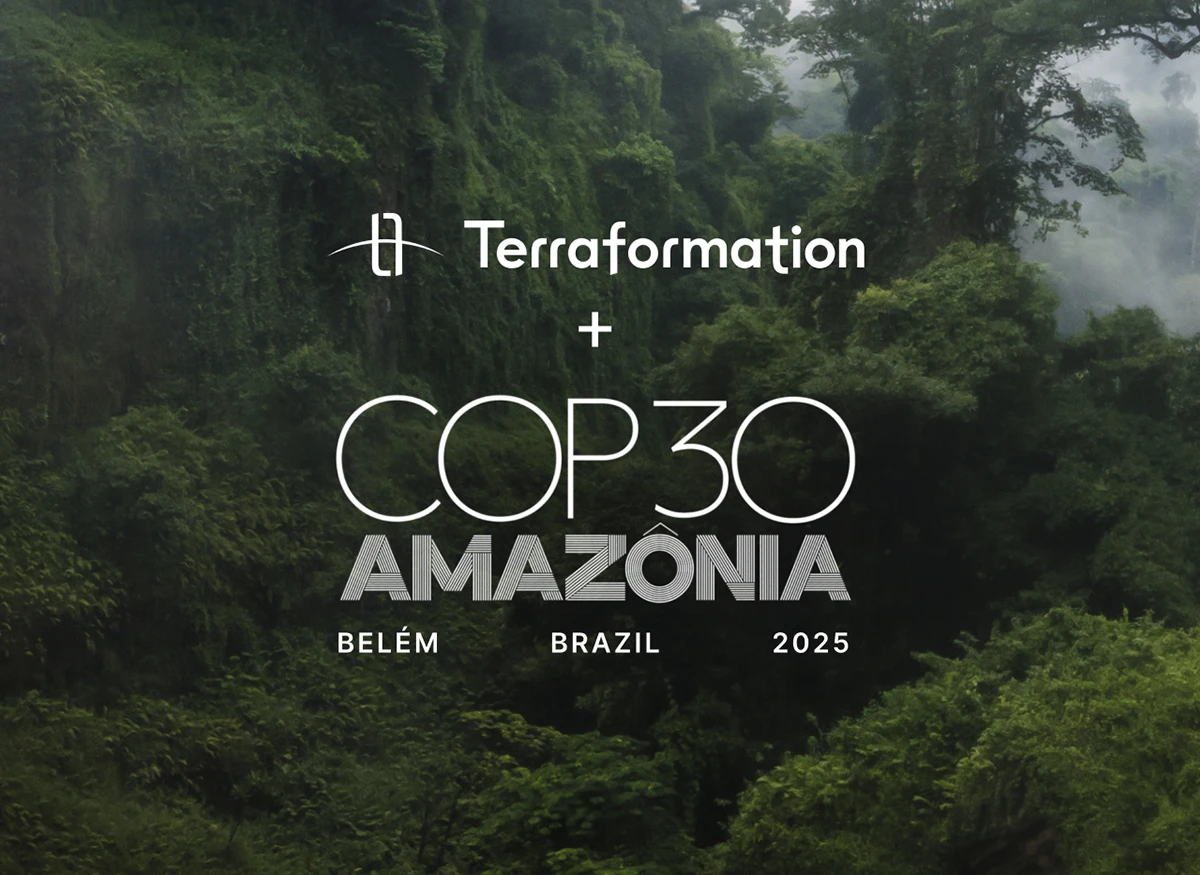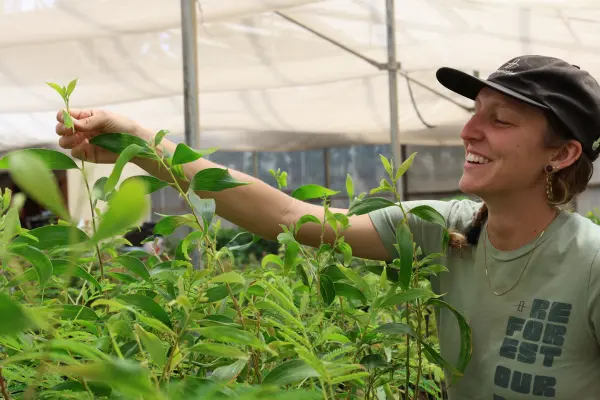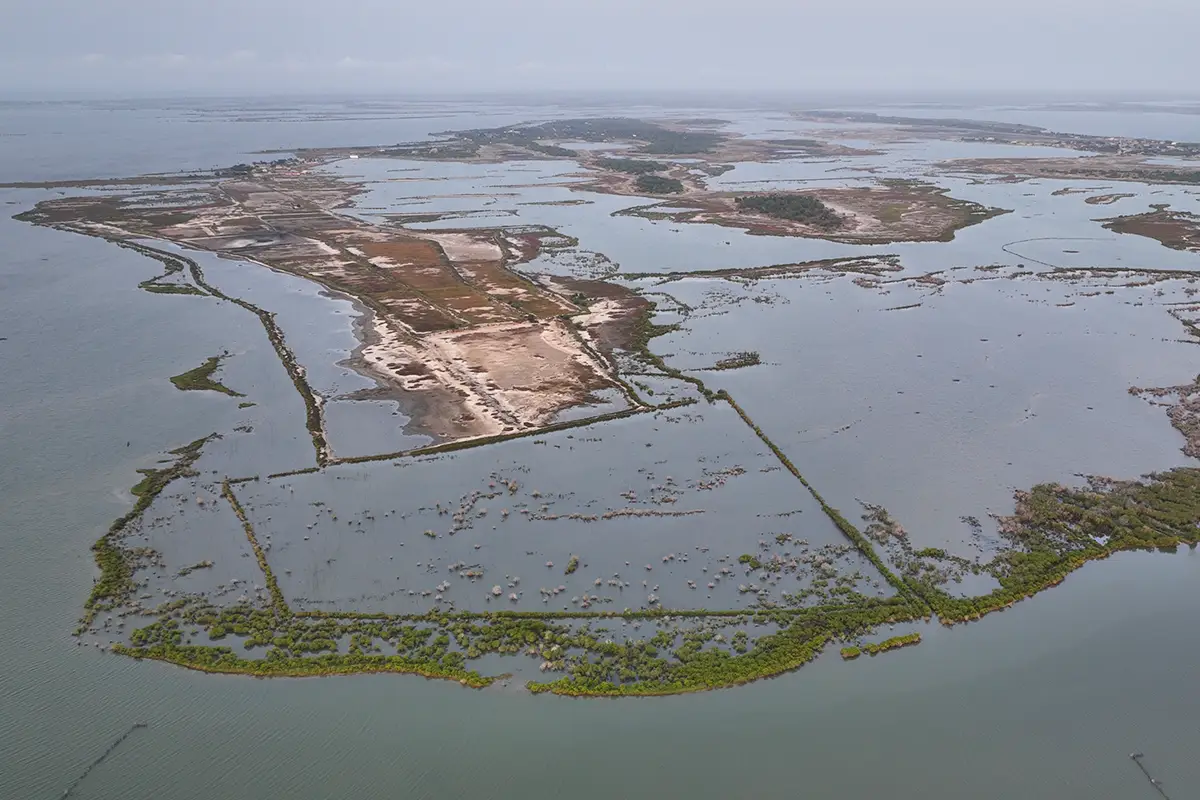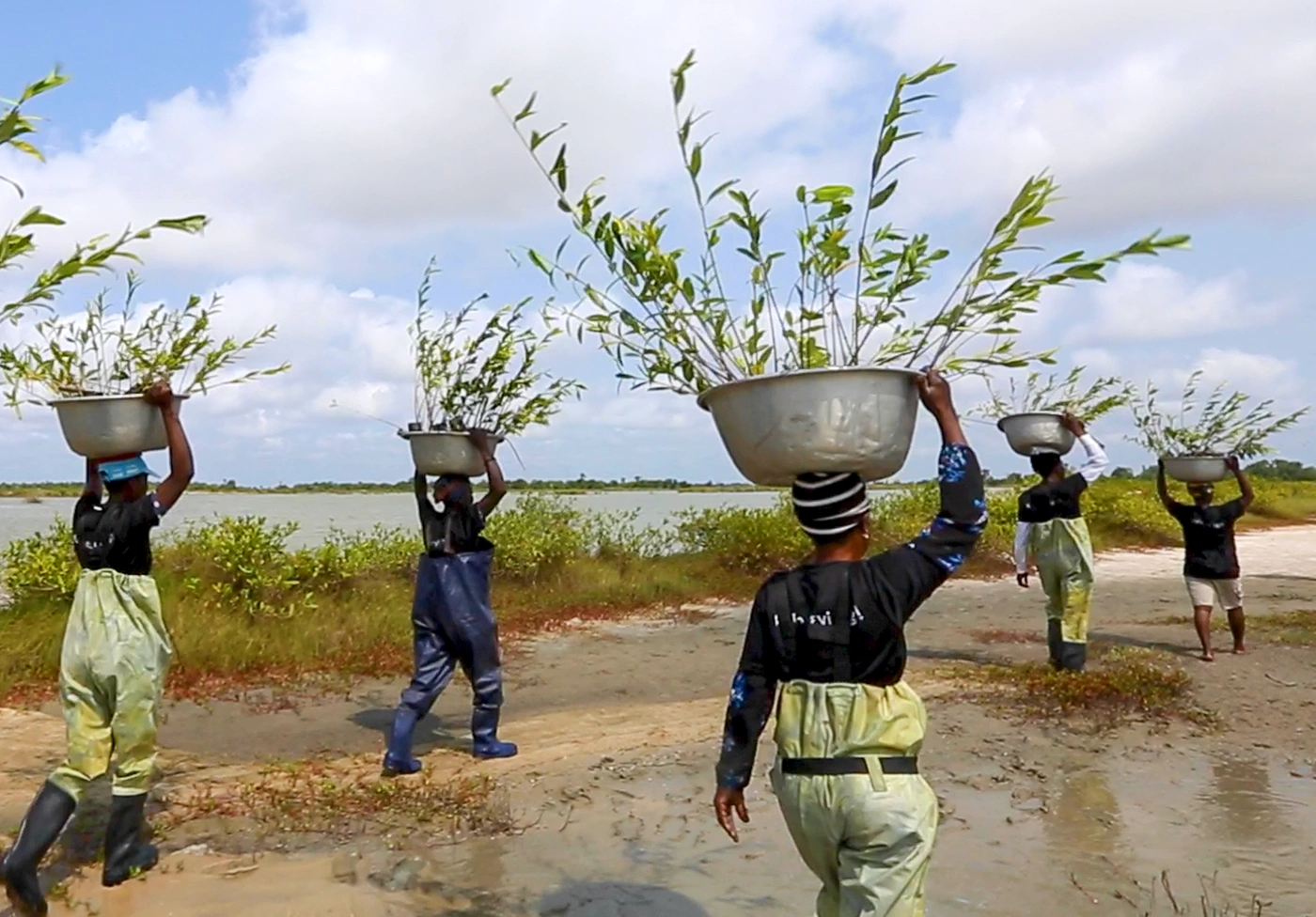Eden Reforestation Projects: Community-Focused Restoration on a Global Scale

Kenya has long been famous for abundant wildlife — millions of people flock there each year to view megafauna like elephants and lions. Now the country faces an ecological crisis that threatens both animals and people. Kenya has lost 14% of its total tree cover since 2002, which has exacerbated drought and poverty.
Reforestation on a global scale
The global nonprofit Eden Reforestation Projects is tackling the problem on a large scale, with an ambitious effort to restore habitat, recharge watersheds, and create sustainable jobs — all while growing carbon-thirsty forests that combat climate change. Since 2020, Eden has planted 50 million trees in Kenya; in the coming year, the team plans to plant at least 40 million more.
In order to ramp up restoration — quickly — Eden needs seeds. Terraformation is providing three seed banks to accelerate these efforts.
“Access to seeds is one of our bottlenecks,” says Andrew Kinzer, Eden’s International Director for Africa. “We basically burn through our entire seed stock every planting season. Our demand for high-quality seedlings is quickly outpacing our ability to source and store seed. Being able to bank our own seed will help us continue to scale in size, while maintaining quality seedlings to go into our planting projects.”
A regional seed banking hub
Three initial off-grid, containerized seed banks from Terraformation will serve as regional hubs and support planting across the country, including in the terrestrial forests of the Great Rift Valley. The Eden team is currently rehabilitating 70,000 hectares of degraded land throughout Kenya, with plans to expand.

Photo courtesy of Eden Reforestation Projects
Many of the sites provide habitat for wildlife like elephants, leopards, cape buffalo, primates, and porcupines — along with countless species of birds, insects, and amphibians. They also support local people, who rely on the ecosystems for food and fresh water.
“We’re working in some of Kenya’s major watersheds, helping restore forests that provide crucial water security for millions of people,” Kinzer explains.
Jobs and community co-benefits
In addition to protecting water, one of the organization’s key goals is to create sustainable jobs and mitigate poverty. While Kenya’s economy has improved over the past decade, inequality persists. Roughly one-third of Kenyans survive on less than $2 USD per day, and scarce resources lead to increased pressure on forests from logging and illegal settling.
Eden employs more than 800 Kenyans full-time to work in nurseries, monitor and guard forests, plant trees, and provide operational support. The team brings on many more staff during the rainy season to help with planting, and its long-term goal is to employ thousands of people. The organization runs similar reforestation initiatives in ten different countries, including Mozambique, Nepal, and Brazil — all with an eye on tackling poverty.
“Eden really is a people-first organization that also plants trees and restores landscapes,” Kinzer says. “Communities are at the heart of the work we do.”
















